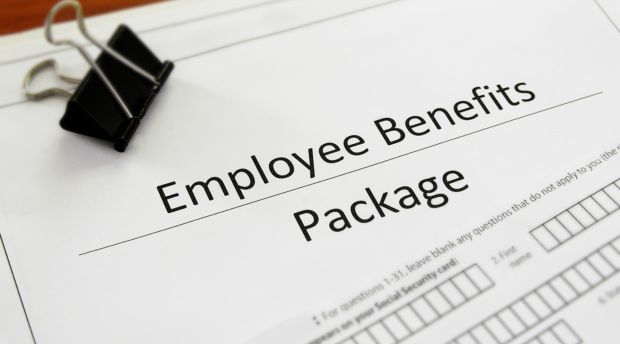How to Get Out of Work on Time by Better Managing Your Time at Work
Post Views 21The way it used to be: You graduated from college and got a nice office job. You worked for as long as the boss told you to. You retired from that same job at age 65, finally able to travel, take up a hobby, or do volunteer work.
The way it is now: Today’s job hunters have realized that work should support a lifestyle, and not vice-versa. In fact, a study of 1,000 U.S. workers by the Center for the Advancement of Health cited the ability to balance work and family as their number one priority – above job security, quality of work environment, and relationships with co-workers and supervisors. And, because the labor market is so tight, employers are scrambling to make workers happy.
Companies are now so serious about the Internet that they hire e-business strategists to help them make best use of the medium.
Even if your employer helps you take care of everything from your kids to the dry cleaning, you may still feel that work is taking over your life. You may not have enough time for your family, hobbies, health, friends, or sleep. Perhaps the daily deluge of voice mail, e-mail, and fax messages at the office has you so worked up that you can’t settle down enough after hours to do the things you enjoy. Maybe bad work habits cause you to stay late at the office and bring work home, or your employer just isn’t one of those enlightened few that truly understands the importance of work-life balance.
You should try to find a job that won’t take you over, convince your employer to offer work-life benefits, create your own schedule, and master time management on the job so you can get more out of life. You remember life, don’t you?
Search Right
If work-life balance is important to you, finding a career that fits your expectations is key. Do you want to work from nine to five – and not a minute more? If so, medicine is probably not for you. Do you want a job where you can do what you love on the job as well as off? Look into careers that will let you combine your interests with your work.
Downsize Yourself
If a demanding job is the culprit that’s upsetting your work-life balance, you can do what Dan Horton of Minneapolis did–downsize yourself.
Horton was once a VP in public relations for a national non-profit. “My family life suffered tremendously,” he says. “I was either on the road, about to go on the road, or winding down from being on the road. I sometimes missed important events, such as my daughter winning a high school tennis tournament, a wedding for one of my nieces, and my wife’s birthday because I was out working on some project for our company.”
Ultimately, Horton developed high blood pressure and cholesterol problems, partly because of the not-so-healthy diet he relied on when traveling. He decided that the glamour of his job wasn’t worth the stress, and eventually took a job in public relations at a liberal arts college near his home. “Already,” he says, “I am finding the pace better, my life at home more in order, and my blood pressure [is] coming down. I believe this will create a much better balance in my life.”
Make a Job Change
If you find yourself doing 16-hour days and jumping ship is not a viable alternative, you should investigate the work-life balance options that your employer offers – and the options that you create for yourself. The first step is to talk to your employer’s Human Resources department or benefits professional to find out what’s available. Maybe you just never knew about the company’s telecommuting plan or corporate lactation program.
If the employer offers no help at all, or if their work-life choices aren’t right for you, think about what you need to be at your most productive at work and home, then approach the employer with your ideas. Don’t just come armed with a problem – offer a solution. For example, you might point out that telecommuting from home three days per week will allow you to be more productive.
Make a Life Change
Sometimes it isn’t just your job that’s creating a work-life imbalance. The way you handle your work and your life plays a big role. Working smarter and building better time management skills will help you get out of the office – and fit more of what you love into your allotted 1,440 minutes per day. These tips from coaches and time management experts will help you head home at five o’clock and not worry about work until the next day.
Personal coach Kristin Carson suggests that you map out your top three priorities. “Put them on notecards and post them everywhere,” she says. “Measure every task against your top three priorities.”
Turn off technology, advises Kathy Donaldson. Don’t let e-mail, voicemail, and faxes take over your life. At the end of the work day, for example, you can record the next day’s outgoing voicemail message; that way, callers will know not to expect an instant callback after normal working hours.
Start removing the frivolous things from your life. “Anybody can free up time,” says Carson. “For example, cut out TV.”
Create an end-of-day ritual to signal that your workday is over, especially if you telecommute. One worker walks once around his house and comes back inside again to tell his brain that it’s time to relax.
Create a disincentive to working after hours. For instance, Kathy Donaldson created a “Loser of the Day” award to present to the last person still in the office at the end of the day.
If your job is taking over your life, don’t let yourself become the “Loser of the Day.” Following these tips will help you leave work where it belongs – at the office.
How to Get Out of Work on Time by Better Managing Your Time at Work by Granted Contributor



 The Best Companies and Their Benefits
The Best Companies and Their Benefits  Don’t Be Too Disappointed about a Lower End-of-Year Bonus
Don’t Be Too Disappointed about a Lower End-of-Year Bonus  10 Ways to Negotiate a Job Offer Like a Pro
10 Ways to Negotiate a Job Offer Like a Pro  50 Companies with Job Benefits to Jump For
50 Companies with Job Benefits to Jump For  Parental Leave Policies Becoming Common Benefits
Parental Leave Policies Becoming Common Benefits  Stop Relying on Your Job Benefits
Stop Relying on Your Job Benefits  Perks to Ask for Instead of a Raise
Perks to Ask for Instead of a Raise  5 Ineffective Benefits
5 Ineffective Benefits